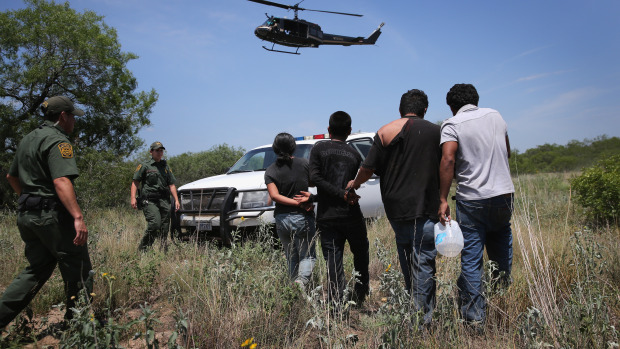Set the clock back one year and the United States was dealing with a different emergency. The spring of 2019 saw unprecedented surges of illegal aliens pouring across our southern border, most of them seeking to take advantage of loopholes in our asylum laws and judicially imposed constraints on detention of families with children and unaccompanied minors.
That emergency posed its own set of problems and dangers, in addition to the abuse of our laws and policies. The surge overwhelmed our capacity to detain and/or adequately vet people who were being released by the thousands each day into American communities. These wholesale releases posed threats to public safety, public services and, yes, public health.
Unlike the 2020 COVID-19 crisis, Congress did not appropriate additional funds to contain last year’s border crisis. Some additional money was legitimately earmarked to address the human needs of the people – many of them children – who were streaming across the border. However, House Speaker Nancy Pelosi, for political reasons, made a point of excluding funding for additional border fencing or detention facilities.
In response to congressional obstruction and gridlock in the face of a growing border crisis, President Trump declared a national emergency. Under that proclamation, some funding was diverted from the Federal Emergency Management Agency (FEMA), which, like our border and immigration enforcement agencies, is part of the Department of Homeland Security (DHS).
The thing about emergencies is that they have to be dealt with now. They cannot wait for Congress to get its act together. Moving money around within agencies under DHS’s umbrella is less than ideal, but certainly a legitimate response on the part of the Executive Branch. Moreover, tapping funds from the Federal Emergency Management Agency was probably one of the most logical places to find money to manage a federal emergency.
Critics of the administration’s focus on border security and reining in mass illegal immigration are now blaming FEMA’s failures in the face of the COVID-19 crisis on last year’s diversion of funds to deal with last year’s emergency. It is probably too early to assess FEMA’s overall performance in response to the COVID-19 pandemic. But to pin whatever shortcomings FEMA might be guilty of largely on last year’s decision to divert funding to control the border emergency is more political than factual.
If FEMA has come up short in addressing the current crisis, there are numerous factors and ample blame to go around. For starters, there’s FEMA’s track record. Dating back many years, the agency has been criticized (perhaps fairly, perhaps not) for slow or inadequate responses to emergencies (see: Katrina 2005).
Second, the Executive Branch could have requested, or Congress could have acted on its own to replace the money in FEMA’s reserves that were drawn down last year to address the emergency at hand. The administration could have filled numerous vacant positions with the agency, and Congress could have exercised its oversight responsibilities to ensure that FEMA was adequately staffed. Nor can anyone ignore that the diversion of funds in 2019 was a direct result of the fact that the response to the border crisis was recklessly politicized.
It is hard to argue, however, that we were not prepared for 2020’s crisis because we responded to 2019’s. It is FEMA’s job to expect the unexpected, and it is Congress and the Executive’s job to make sure that they are prepared and have the resources to respond to the next emergency after dealing with the last emergency.




